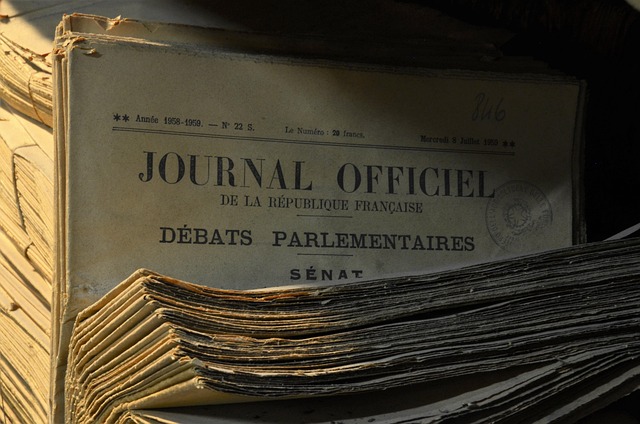Public corruption and Business Partnership Agreement (BPA) breaches carry severe legal and financial consequences, including fines, imprisonment, civil lawsuits, and reputational damage. In today's digital age, maintaining transparency and accountability is crucial to prevent partnership crises. Robust BPA policies with clear terms, background checks, compliance training, and transparent reporting can mitigate risks and foster strong, ethical partnerships.
“Public corruption charges cast a long shadow over individuals, businesses, and entire industries. Understanding these legal definitions and their impacts is crucial for navigating today’s complex business landscape. This article delves into the intricacies of public corruption, focusing on its manifestation in business partnerships and agreement breaches. We explore the consequences, including financial loss and reputational damage, while offering insights into preventative measures to foster ethical conduct within business partnerships, emphasizing the importance of transparency and accountability.”
- Understanding Public Corruption Charges: Legal Definition and Impacts
- Business Partnership: When Trust is Betrayed and Consequences Arise
- Agreement Breach: Unraveling the Legal Ramifications for Businesses
- Financial Loss and Reputational Damage: The Cost of Corruption
- Preventative Measures: Ensuring Ethical Conduct in Business Partnerships
Understanding Public Corruption Charges: Legal Definition and Impacts
Public Corruption Charges refer to illegal acts by public officials or those in positions of power who misuse their authority for personal gain. This can include accepting bribes, misusing public funds, and exploiting their office for private business deals. Legally, it’s defined as a breach of trust and a violation of the public’s interest. These charges carry significant consequences, not just for individuals but also for businesses and societal structures.
In many cases, those accused of public corruption face severe penalties, including fines, imprisonment, and civil lawsuits. Moreover, it can lead to the dissolution of business partnerships that were formed with a disregard for ethical boundaries, as seen across the country in cases involving white-collar and economic crimes. An unprecedented track record of corruption can taint reputations, disrupt businesses, and erode public trust, underscoring the need for robust legal frameworks and strict adherence to ethical standards.
Business Partnership: When Trust is Betrayed and Consequences Arise
In the realm of business partnerships, trust is a cornerstone that holds together agreements between corporate and individual clients. When this trust is betrayed, it can have profound implications, especially when public corruption charges come into play. A breach of the Business Partnership Agreement (BPA) can lead to severe Consequences, not just for the individuals involved but also for the philanthropic and political communities that look up to these relationships as models of integrity.
For his clients, navigating a BPA breach involves legal, ethical, and reputational challenges. The consequences may include financial penalties, loss of business opportunities, and even criminal charges. In today’s digital era, where whispers of corruption can reverberate swiftly, the onus is on partners to ensure transparency and accountability from the outset. This proactive approach not only fosters trust among clients but also helps in averting potential crises that could damage the reputation of all involved parties.
Agreement Breach: Unraveling the Legal Ramifications for Businesses
In the intricate web of business partnerships, an agreement breach can have profound legal ramifications. When a company or individual violates the terms set forth in their partnership contract, it not only undermines trust but also opens the door to significant consequences. These repercussions extend beyond mere financial settlements and can impact the very fabric of future business dealings. The legal system plays a pivotal role in ensuring accountability, with courts often acting as arbiters to interpret the terms and enforce them fairly.
In cases of agreement breaches, especially within complex business partnerships, the stakes are high. Jurors in these trials are tasked with delving into intricate financial records and evaluating the intentions behind actions. An unprecedented track record of successful white-collar defense strategies may influence how such cases are adjudicated, shaping the potential outcomes for all parties involved. Understanding the specific terms and their implications is crucial to mitigating risks and fostering robust, lasting business partnerships.
Financial Loss and Reputational Damage: The Cost of Corruption
Public corruption, often involving bribery, fraud, and abuse of power, can lead to significant financial losses for both individuals and organizations. When a business partnership agreement is breached due to corrupt practices, the consequences can be devastating. The accused may face civil lawsuits, leading to substantial monetary fines and damages, which can cripple their finances and even result in complete dismissal of all charges if proven innocent but found guilty by association. This not only affects the direct parties involved but also has a ripple effect on their business networks, damaging reputations and hindering future collaborations.
Reputational damage from corruption charges is often harder to quantify but no less severe. Achieving extraordinary results for clients becomes challenging when the public perception is marred by allegations of unethical behavior. The legal battles that follow can be lengthy and costly, further straining resources and diverting attention from core business operations. For his clients, this could mean lost opportunities, diminished market standing, and a struggle to maintain trust with stakeholders, including investors, partners, and customers.
Preventative Measures: Ensuring Ethical Conduct in Business Partnerships
Preventative measures are crucial to mitigating public corruption charges, especially in business partnerships. A robust Business Partnership Agreement (BPA) serves as a cornerstone, outlining clear expectations and consequences for all parties involved. Breach of this agreement can lead to severe repercussions, including legal action, reputational damage, and loss of trust among stakeholders, particularly within the philanthropic and political communities.
For his clients, ensuring ethical conduct requires proactive steps such as thorough background checks, regular compliance training, and transparent reporting mechanisms. Corporate and individual clients alike must be vigilant in upholding integrity to protect themselves from becoming entangled in corrupt practices. This not only safeguards their interests but also fosters a culture of accountability across all business partnerships.
Public corruption charges cast a long shadow over businesses, particularly when rooted in breach of business partnership agreements. These legal consequences not only include financial losses but also severe reputational damage, impacting a company’s standing and future prospects. By understanding the definition, impacts, and specific legal ramifications outlined in this article—from agreement breaches to preventative measures—businesses can forge stronger partnerships, mitigate risks, and navigate these challenges with greater resilience. Ultimately, fostering ethical conduct is paramount to safeguarding against the devastating consequences of corruption.






